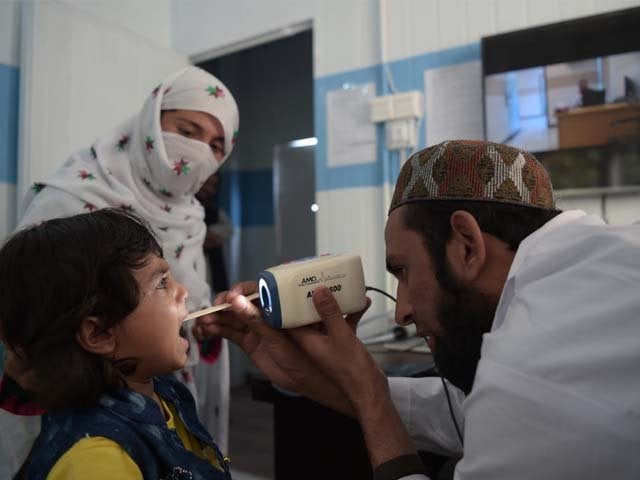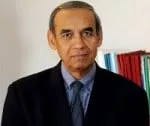There are several healthcare providers (HCP) in Pakistan: the formal sector, including government-run facilities, private facilities, charitable trusts and NGOs. The informal sector includes homeopaths, hakims, faith healers and ‘quacks’ (unqualified healthcare personnel). Pakistan’s large population and high prevalence of all illnesses, both communicable and non-communicable, coupled with illiteracy, ignorance, mis-perceptions and stigma of many conditions, ensures that all these different HCPs get enough ‘business.’
In Pakistan, out-of-pocket healthcare expenditure (people paying themselves) is as high as 80%- 90%. Government healthcare facilities, ostensibly free but chronically underfunded, are accessed only by the poorest. Hence, in the absence of a public funded healthcare system, private medicine has flourished and has become a multi-billion dollar industry in Pakistan. Private hospitals, doctors, laboratories, X-ray centres, medical device manufacturers and pharmaceutical companies are all cashing in. Unfortunately, all this is at the expense of the hapless Pakistani population, many of whom sink into poverty and debt to pay their medical costs.
A cataract operation in Pakistan can cost anything from Rs. 50,000 to 150,000, a normal delivery ‘package’ in a private hospital up to Rs 200,000-300,000 and average cost of a private room between Rs 8000-15,000/day (not including charges for doctor’s visit, medicines, tests or other service). An intensive care unit (ICU) bed can be as high as Rs 100,000/day or more. Consultation charges with a specialist can cost between Rs 2,000 to Rs 6,000 per visit. If the hospital stay is prolonged due to complications, the costs go up exponentially.
With so much money to be made, innumerable private healthcare facilities have sprung up all over the country. These facilities can charge whatever they like and there are no standards to meet. All are totally unregulated. Except in a few, there are no mechanisms to address grievances of patients. The acts of violence towards healthcare staff one reads about are in many cases the result of medical negligence and poor quality of healthcare along with the high costs of hospitalisation.
In Pakistan, medicine is predatory, as hospitals vie with each other to get a piece of the pie, and many hospitals have started marketing their services to attract more patients. Some hospitals give discounts on tests and consultations on special occasions such as Ramazan or Eid. It is not uncommon to see physicians and dentists, in white coats and stethoscope round their neck, endorsing services or products, ignoring the ethical and moral foundations on which the medical profession stands.
Everyday, thousands of Pakistanis undergo lab, X-rays, CT and MRI tests, in many instances unnecessarily, which enrich labs and doctors but do little for the patients. Many labs give kickbacks to the referring physicians.
Without a system to screen people in the community, people access specialists directly, even for minor problems. In 72 years, neither the government nor any institution in Pakistan has developed comprehensive ‘health systems,’ where minor problems are dealt with by family physicians at primary health care (PHC) units, cases of moderate complexity by secondary care, and only the more complex cases by specialists. The reason of course is commercial. As long as people are ready to pay, neither the specialist will be too bothered to treat minor ailments such as cough and diarrhea nor will the family physician be hesitant to distribute third generation anti-depressants to patients with complex psychiatric illnesses.
As the World Health Organisation (WHO) advocates for Universal Health Coverage (UHC), i.e. free healthcare at the point of service, it is imperative that developing countries like Pakistan invest in a public-funded quality PHC system, using a disease prevention and health promotion approach, focusing on the socio-economic and political determinants of ill health. A health promotion model includes provision of playing grounds for children or walking tracks for adults to prevent obesity and heart disease. A disease prevention model includes provision of clean drinking water and food hygiene, vaccination programmes, enforcement of laws for helmets for motorcyclists, seat belts for motorists and smoke and noise emitting vehicles. Up to 80% of healthcare problems can be managed effectively at the PHC level, with only about a quarter to a third requiring specialist care.
Stop-gap measures and programs such as ‘Sehat cards’ are not the long term answers to Pakistan’s ever growing healthcare needs. If the cards are to be used at the same unregulated, expensive, poor quality facilities, what good are they?
There is also an urgent need to regulate Pakistan’s private medicine sector, which should include, amongst other things, registration of hospitals, tax accountability, fees structures, quality standards, credentialing of healthcare staff and systems for patients’ complaints. The regulation should also cover charitable and NGO health facilities, many of which operate under the principle of ‘something is better than nothing’ by providing ‘free’ healthcare which strips people of all dignity and respect.
American senator and presidential candidate Kamala Harris argued,
“I believe that health care should be a right, but the reality is that it is still a privilege in this country. We need that to change. When someone gets sick, there is already so much else to deal with: the physical pain for the patient, the emotional pain for the family. There is often a sense of desperation — of helplessness — as we grapple with the fear of the unknown. Medical procedures already have risks. Prescription drugs already have side effects. Financial anxiety should not be one of them.”
Harris was talking about one of the most advanced and richest countries in the world. In light of this, one can only imagine what patients and their families go through as they negotiate Pakistan’s costly, unregulated and predatory private healthcare system.



COMMENTS
Comments are moderated and generally will be posted if they are on-topic and not abusive.
For more information, please see our Comments FAQ